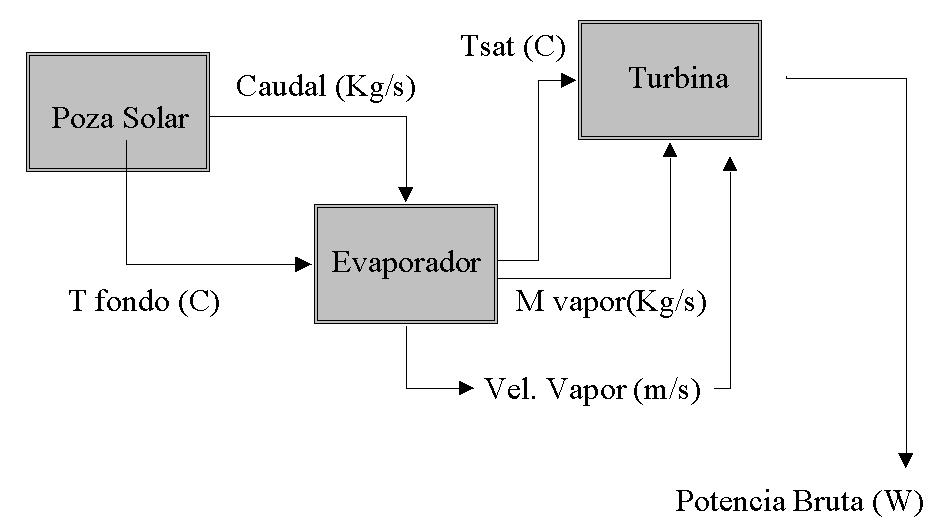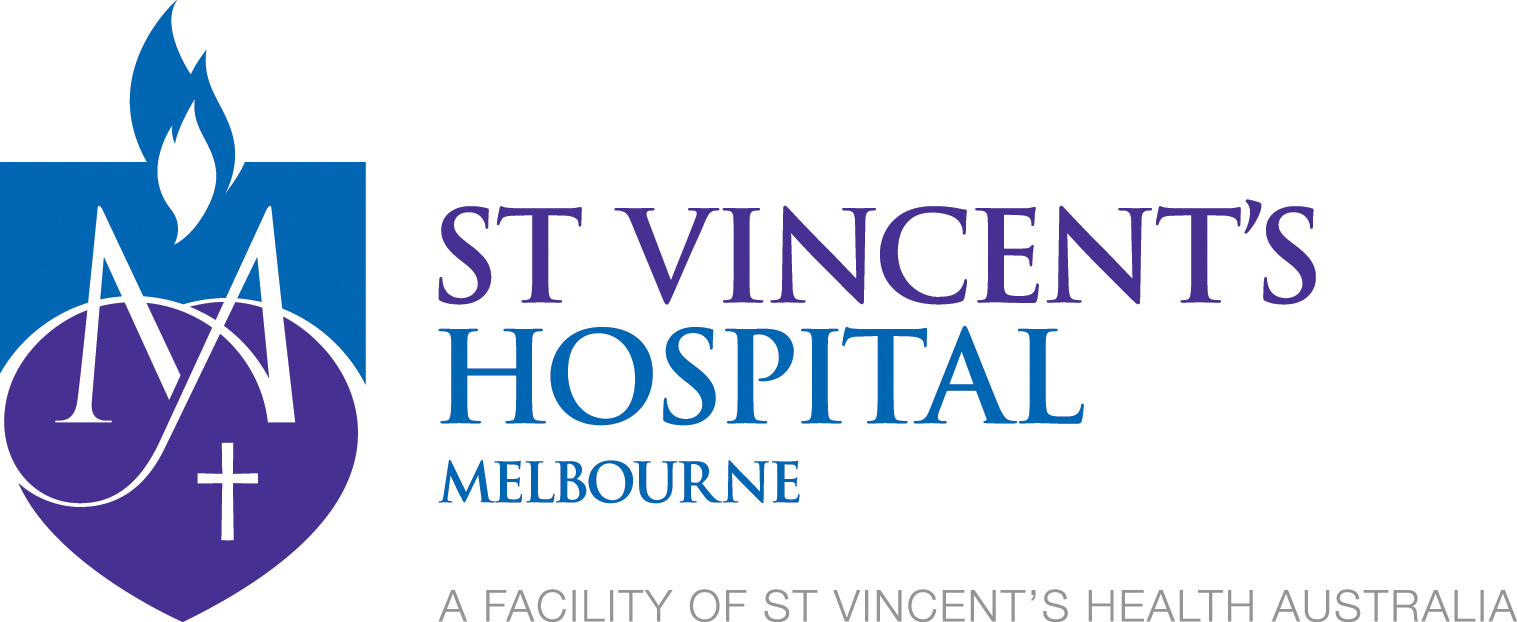PROCEDURE 524 INSURANCE INDEMNITY RESEARCH AGREEMENTS AND THE VMIA
ALL SCHOOL PROCEDURES AND POLICIES FROM THE STUDENTDISCHARGE OF CARE ORDERS – STANDARD PROCEDURE THE
ILLICIT DISCHARGE DETECTION AND ELIMINATION FIELD PROCEDURES AND
OFFICE OF STUDENT EMPLOYMENT PROCEDURE FOR GRADUATE
Procedures for Varying Shared Ownership Leases Background
YOUTH OFFENDING SERVICE HOME VISITLONE WORKING PROCEDURE
Patient Admission
Procedure 5.24
Insurance, Indemnity, Research Agreements and the VMIA
|
|
RESEARCH GOVERNANCE UNIT St. Vincent’s Hospital (Melbourne) Caritas Christi Hospice St. George’s Health Service Prague House |
INSURANCE, INDEMNITY, RESEARCH AGREEMENTS AND THE VMIA
Statement of Intent and Outcomes
The St Vincent’s Hospital Human Research Ethics Committee is committed to fulfilling the Australian Code for the Responsible Conduct of Research (2007), The National Statement on Ethical Conduct in Human Research (2007) and the requirements of the Victorian Managed Insurance (VMIA) by providing a framework for the review of insurance, indemnity and research agreements.
Definitions
Nil
Procedure
As the Hospital’s insurer, VMIA has released specific guidelines to guide the process of review for sponsored and collaborative clinical research, which involve clinical trials notification.
Clinical Trials Notification Form
Clinical trials which involve the use of unapproved drugs and devices, including those being used outside of their approved indications, must be notified to the Therapeutic Goods Administration in accordance with all statutory and regulatory requirements. This must be signed by the reviewing HREC and the responsible institution.
Indemnity
All clinical trials involving a commercial Sponsor must provide indemnity in a form no less favourable than the current version Medicines Australia Form of Indemnity for Clinical Trials.
Both commercial Sponsorship and the indemnity must be provided by an Australian corporate entity. The reason for this is both legal and practical. If an indemnity is provided from an overseas-based corporation, with no assets or other presence in Australia, there are major (sometimes insurmountable) problems to be faced, particularly in relation to a corporation based in the USA, if the VMIA or a hospital has to enforce the indemnity. In many cases, enforcement proceedings would have to be instituted, at vast cost, in a foreign jurisdiction.
Where there is no Australian related corporate entity of the relevant overseas corporation, the services of an Australian corporate research organisation may be utilised to conduct the Trial in Australia. In that case, the research organisation is the Commercial Sponsor and must provide an indemnity. Any indemnity provided by a corporate research organisation must be provided by it in its own right. It is not acceptable for the corporate research organisation to provide the indemnity as agent of the overseas company.
Where the involvement of a hospital is limited to ethical review by its HREC Clinical trials are sometimes conducted by private hospitals or practitioners in private practice. Some of these clinical trials are reviewed (for the purposes of obtaining any requisite ethical approval) by a public Hospital’s HREC. The Commercial Sponsor’s indemnity must name and fully indemnify the public hospital and its agents and servants for their participation and possible legal exposure in providing ethical review of a trial. An indemnity must be provided by the Commercial Sponsor in a form no less favourable than the “Form of Indemnity for Clinical Trials HREC Review Only”
Insurance
For all Sponsored clinical trials a current Public/Products Liability (or its equivalent) Certificate of Insurance from the Commercial Sponsor must be obtained.
To comply with the minimum insurance requirements, sponsored research must provide a copy of the certificate of currency (or insurance certificate) which contains the following information:
The type of insurance – Public and Product Liability – or equivalent such as General Liability or Clinical Trials Insurance
The full legal name of the Australian entity acting as the sponsor
The full legal name of the insurer (which must be approved by the Australian Prudential Regulation Authority or a foreign equivalent). All insurers are required to hold Standard & Poor’s financial rating of not less than ‘A-’.
The period of insurance
That the insurance coverage allows for a minimum of A$10 million for any one occurrence and in the annual aggregate
That the insurance coverage contains an excess/deductible, or self insured retention amount greater than A$25,000 for each and every claim or series of claims arising out of one original cause.
Additional information regarding the level of insurance and indemnity required can be obtained from the Victorian Managed Insurance Authority (VMIA) Clinical Trials Guidelines http://www.vmia.vic.gov.au/Risk-Management/Clinical-trials/clinical-trial-notification-guidelines.aspx
Clinical Trial Research Agreements
The Sponsor of the trial is the company, institution or organisation that takes overall responsibility for the conduct of the Trial and usually initiates, organises and supports a clinical study of an investigational product in human subjects. The Sponsor must be an Australian company or entity.
A written agreement between St Vincent’s Hospital and the Sponsor must always accompany a clinical trial; including, where relevant, a Commercial Sponsor which sets out the responsibilities of each party.
Medicines Australia Clinical Trial Research Agreements must be used for clinical trials. The use of the CTRAs should, in most cases, obviate the need for Institution to obtain extensive legal advice in relation to a Clinical Trial Research Agreement.
Commercially Sponsored CTRA
The Commercially Sponsored CTRA is to be used when an Australian pharmaceutical company or an Australian subsidiary of an international pharmaceutical company acts as the Sponsor for the purposes of the clinical trial.
The parties to the Commercially Sponsored CTRA are the Sponsor and the investigating institute.
The Principal Investigator is not a party to the CTRA. However, the Principal Investigator may sign the CTRA to acknowledge the obligations it imposes. The substantive provisions of the Commercially Sponsored CTRA must not be amended. Any minor amendments that may be required to accommodate any operational requirements of either party can be made through Schedule 7.
Corporate Research Organisation (CRO) CTRA
The CRO CTRA is to be used where an entity/ company that is not an Australian resident wishes to initiate a clinical trial and engages a CRO (that is an Australian entity) to act as the Sponsor for the purposes of the CTN application. The CRO becomes, and assumes all responsibilities and obligations that attach to, a Sponsor.
As Sponsor, the CRO must: Provide a Medicines Australia Form of Indemnity in favour of the Institution. Provide evidence of insurance arrangements that meet the minimum requirements of VMIA. It is acceptable for the CRO to be a named additional insured under an insurance policy of an organisation that is not an Australian entity/company.
The substantive provisions of the CRO CTRA must not be amended. Any minor amendments that may be required to accommodate any operational requirements of either party can be made through Schedule 7.
Collaborative Research Group (CRG) CTRA
The CRG CTRA is to be used when a collaborative/ cooperative research group is the Sponsor of the clinical trial. The substantive provisions of the CRG CTRA must not be amended. Any minor amendments that may be required to accommodate any operational requirements of either party can be made through Schedule 4.
Schedule 7 (Commercially Sponsored and CRO CTRA) and Schedule 4 (CRG CTRA)
Schedule 7 of the Commercially Sponsored CTRA and Schedule 4 of the CRG CTRA may be used to incorporate into a CTRA any unique operational requirements that are required by a party to allow the conduct of the clinical trial.
Schedules 7 and 4 are not to be used to substantially amend the CTRA or to introduce provisions that contradict or otherwise undermine the substantive provisions or intent of the CTRA.
The VMIA has approved a number of Schedule 7 provisions submitted by individual commercial sponsors for the Commercially Sponsored CTRA. The approved Schedule 7 clauses have been issued to both the health services and the respective commercial sponsor. There will be commercial sponsors that have not submitted Schedule 7 provisions for review by the VMIA. Given the substantial collection of Schedule 7 approved clauses, it is reasonable for an Institution to assess the acceptability of any request by such commercial sponsor against the existing approved Schedule 7 database provided by VMIA.
Subcontracting Commercially Sponsored and CRO CTRA
If a Commercial Sponsor or a CRO intends to subcontract any of its functions under a CTRA, the following clause can be used by way of Schedule 7:
“The Local Sponsor/CRO may subcontract any of its obligations under this Agreement, save for the obligations set out in clauses 5.1(8), 5.1(9) and 5.1(10) of the Agreement. The Local Sponsor remains responsible for all subcontracted obligations and is liable for all acts and omissions of any subcontractor as if they were the Local Sponsor’s acts and omissions. No subcontractor will have any rights under this Agreement against the Institution or be entitled to receive any payment from the Institution.”
CRG CTRA
If a CRG intends to subcontract any of its functions under a CTRA, the following clause can be used by way of Schedule 4:
“The CRG may subcontract any of its obligations under this Agreement, save for the obligations set out in clause 10 of the Agreement. The CRG remains responsible for all subcontracted obligations and is liable for all acts and omissions of any subcontractor as if they were the CRG’s acts and omissions. No subcontractor will have any rights under this Agreement against the Institution or be entitled to receive any payment from the Institution.”
Associated Procedures/Instructions
Nil
Reference Documents
The National Statement on Ethical Conduct in Research Involving Humans in accordance with the NHMRC Act, 2007 (Cth)
Australian Code for the Responsible Conduct of Research (2007)
VMIA Research Governance Toolkit
VMIA Guidelines for Clinical Trials
Authorized by:
Dr Megan Robertson
Director of Research
|
Author: Dr Tam Nguyen, Executive Officer |
|
|
Date Issued: 2011 |
Next Review: 2017 |
|
Date Revised: 2015 |
Filepath: |
5.24
Insurance, Indemnity, Research Agreements and the VMIA Page
(REPORT TEMPLATE) INDEPENDENT ACCOUNTANT’S REPORT ON APPLYING AGREEDUPON PROCEDURES
(YOUR BUSINESS NAME HERE) – SAFE WORK PROCEDURE
(YOUR BUSINESS NAME HERE) – SAFE WORK PROCEDURE PORTABLE
Tags: agreements and, research agreements, agreements, insurance, procedure, research, indemnity
- UNIVERSITY POLICY ON COURSES – AWARD CERTIFICATION SCHEDULE
- KAWARTHA PINE RIDGE DISTRICT SCHOOL BOARD – POLICY STATEMENT
- PLAN ZAJĘĆ DLA 2 ROKU I STOPNIA – KIERUNEK
- SE ADJUNTA INFORMACIÓN RECIBIDA DE LA EMBAJADA DE TURQUÍA
- MATERIALES PARA TRABAJAR LA EDUCACIÓN EN VALORES A PÁGINAS
- 92 SUMAS Y MÁS SUMAS EN GENERAL ES DIFÍCIL
- JUHTA JULKISEN HALLINNON TIETOHALLINNON NEUVOTTELUKUNTA JHS 106 POSTIOSOITE
- P ANEVROPSKI UNIVERZITET B A N J A L
- NORMAS DE PUBLICACIÓN SHORT PAPER TISE 2017 1ST AUTHOR
- ALLA SCOPERTA DEL DUOMO DI FIDENZA CON YOSHIE KOJIMA
- (IME I PREZIME) (ADRESA STANOVANJA) (KONTAKT
- INVESTIGATIVE QUESTION WHAT GEOLOGIC STRUCTURES OR BEDROCK PROPERTIES ARE
- KOMUNALNO DUGA RESA DOO DUGA RESA FINANCIJSKI IZVJEŠTAJ S
- ORGANİZASYONLARDA BİREYLER TUTUM DAVRANIŞ VE MOTİVASYON DOÇDR ÖZKAN TÜTÜNCÜ
- OBSAH PUBLIKACÍ 1 BOB CARR ENERGIE POTRAVIN 1992 2
- PREPARACIÓN DE TRABAJOS PARA EL I CONGRESO IBEROAMERICANO DE
- A UCZYNKI MIŁOSIERNE WOBEC CIAŁA 1 GŁODNYCH NAKARMIĆ 2
- PARLAMENTUL EUROPEAN 20142019 NODOCSE01272016NODOCSE DATE{30112016}12122016DATE TITRETYPEDECLARAȚIE SCRISĂTITRETYPE TITRERECUEILPREZENTATĂ ÎN
- APRENDIZAJE SIGNIFICATIVO Y VIVENCIAL ¿CÓMO MOTIVAR AL ESTUDIANTE PARA
- TÊN DOANH NGHIỆP 1 SỐ CỘNG HOÀ
- CANCIONERO CASA NACIONAL MUSICAL JAIME BLANCO B CONTENIDO NUMERO
- UNIDAD 2 ETAPA 1 NIVEL 2 GUÍA DE ESTUDIAR
- LISTA OBECNOŚCI CZŁONKÓW OSP UPRAWNIONYCH DO GŁOSOWANIA NA WALNYM
- L EADERSHIP RESOURCE LIST OF LEADER VALUES DO
- 4 58 1 GRAPHING AND LABELING ORDERED PAIRS CARTESIAN
- MISIÓN COMERCIAL DEL SECTOR HIDROCARBUROS Y EXPOSICIÓN PETROLERA EN
- WWWFBBVAES NOTA DE PRENSA DEPARTAMENTO DE COMUNICACIÓN ALIMENTOS FUNCIONALES
- PROGRAM CZ 04 – OHROŽENÉ DĚTI A MLÁDEŽ DODATEČNÁ
- STEG ENQUISA SOBRE TRANSPORTE ESCOLAR SINDICATO DE
- DISTRIKT FORMULÄR FÖR ADRESSUPPGIFTER 2009 – INSÄNDES SNARAST EFTER
 CONVOCATORIA 2019 BUENAS PRÁCTICAS EN EL SISTEMA NACIONAL DE SALUD CONVOCATORIA 2019 Y SU CONTEXTO
CONVOCATORIA 2019 BUENAS PRÁCTICAS EN EL SISTEMA NACIONAL DE SALUD CONVOCATORIA 2019 Y SU CONTEXTO INSTRUCTIONS THIS ATTENDANCE FORM IS A HIGHLY VISIBLE DOCUMENT
INSTRUCTIONS THIS ATTENDANCE FORM IS A HIGHLY VISIBLE DOCUMENTANAGRAMA DEL CENTRO MODELO DE CERTIFICACIÓN DE EXPERIENCIA DOCENTE
 WIPOACE96 PÁGINA 8 S WIPOACE96 ORIGINAL ESPANOL FECHA 20
WIPOACE96 PÁGINA 8 S WIPOACE96 ORIGINAL ESPANOL FECHA 20 EJERCICIOS CON SUSTANTIVOS Y ADJETIVOS 1 RESALTÁ LAS PALABRAS
EJERCICIOS CON SUSTANTIVOS Y ADJETIVOS 1 RESALTÁ LAS PALABRAS SIMULACIÓN DE UN SISTEMA SOLAR DE COGENERACION A BAJA
SIMULACIÓN DE UN SISTEMA SOLAR DE COGENERACION A BAJAVISJON SKAPE SAMHOLD OG GLEDE GJENNOM MESTRING OG FELLESSKAP
NUMER IDENTYFIKACJI PODATKOWEJ (NIP)PESEL OŚWIADCZENIE O OPODATKOWANIU CAŁOŚCI PRZYCHODU
BILL ANALYSIS SENATE RESEARCH CENTER HB 559 BY SHEFFIELD
MUSEOS DE DINOSAURIOS ARAGÓN MUSEOEXPOSICIÓN DE PALEONTOLOGÍA DE
PROGETTI DI DESIGN PRIMEIRO DESFILE DA MODA BRASILEIRA
STAGES OF CLASSICAL CONDITIONING UCS UNCONDITIONED STIMULUS UCR UNCONDITIONED
ATNAUJINTŲ MOKYKLOS VEIKLOS ĮSIVERTINIMO RODIKLIŲ APRAŠAS TEMA RODIKLIS RAKTINIAI
2401ILZ2261212017 ZAŁĄCZNIK NR 3 DO ZAPROSZENIA WYKAZ JEDNOSTEK ZEWNĘTRZNYCH
 NZQA EXPIRING UNIT STANDARD 28366 VERSION 2 PAGE 3
NZQA EXPIRING UNIT STANDARD 28366 VERSION 2 PAGE 3VEŘEJNÁ SLUŽBA V TÁBOŘE NA ZÁKLADĚ NOVELY ZÁKONA
 OFFICE OF RESEARCH SERVICES DISCLOSURE OF OUTSIDE FINANCIAL INTERESTS
OFFICE OF RESEARCH SERVICES DISCLOSURE OF OUTSIDE FINANCIAL INTERESTSGOVERNMENT OF INDIA MINISTRY OF HEALTH AND FAMILY WELFARE
 TIPS FOR TEACHERS AND PARENTS – SUPPORTING CHILDREN AFTER
TIPS FOR TEACHERS AND PARENTS – SUPPORTING CHILDREN AFTER ORGANIZA SEMINARIO INTERDISCIPLINAR DE ESTUDIOS DE GÉNERO VICERRECTORADO DE
ORGANIZA SEMINARIO INTERDISCIPLINAR DE ESTUDIOS DE GÉNERO VICERRECTORADO DE
